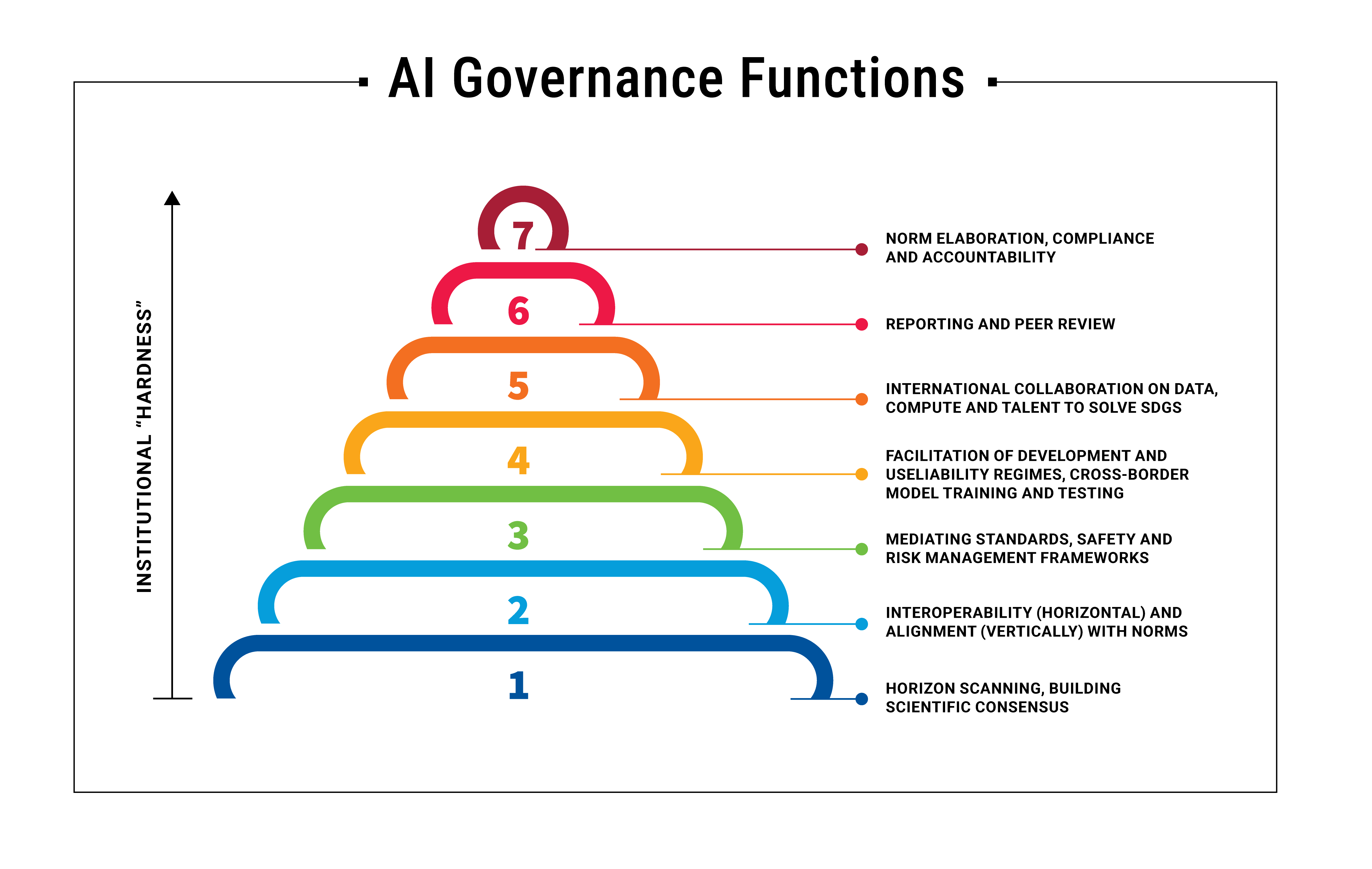United Nation’s Interim Report: Governing AI for Humanity
The UN Secretary-General’s AI Advisory Body has launched its Interim Report: Governing AI for Humanity. The report calls for a closer alignment between international norms and how AI is developed and rolled out. The central piece of the report is a proposal to strengthen international governance of AI by carrying out seven critical functions such as horizon scanning for risks and supporting international collaboration on data, and computing capacity and talent to reach the Sustainable Development Goals (SDGs). It also includes recommendations to enhance accountability and ensure an equitable voice for all countries.
Co-chaired by Carme Artigas and James Manyika, the AI Advisory Body was convened by Secretary-General António Guterres on 26 October 2023. The AI Advisory Body will publish its final report ahead of the Summit of the Future, in the summer of 2024.
Guiding Principles
The interim report identifies the following principles that should guide the formation of new global AI governance institutions:
- Inclusivity: all citizens, including those in the Global South, should be able to access and meaningfully use AI tools.
- Public interest: governance should go beyond the do no harm principle and define a broader accountability framework for companies that build, deploy and control AI, as well as downstream users.
- Centrality of data governance: AI governance cannot be divorced from the governance of data and the promotion of data commons.
- Universal, networked and multistakeholder: AI governance should prioritize universal buy-in by countries and stakeholders. It should leverage existing institutions through a networked approach.
- International Law: AI governance needs to be anchored in the UN Charter, International Human Rights Law, and the Sustainable Development Goals.
Institutional Functions
The Body identified what some functions of AI governance should entail. Among others, they include, regularly assessing the state of AI and its trajectory, harmonizing standards, safety and risk management frameworks, promoting international multistakeholder collaboration to empower the Global South, monitoring risks and coordinating emergency response, and developing binding accountability norms.
Each of these functions requires international cooperation among all actors involved.

Please click on this link to read the interim report.